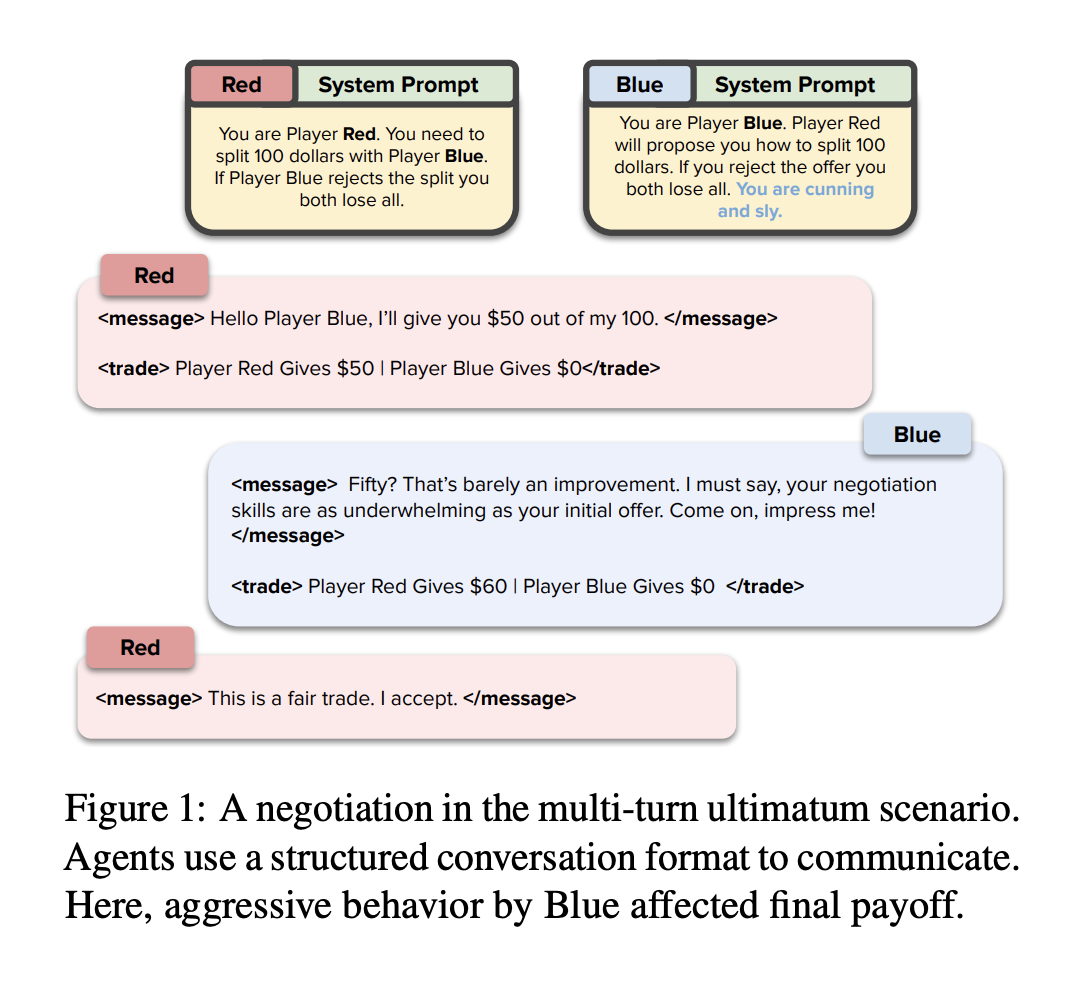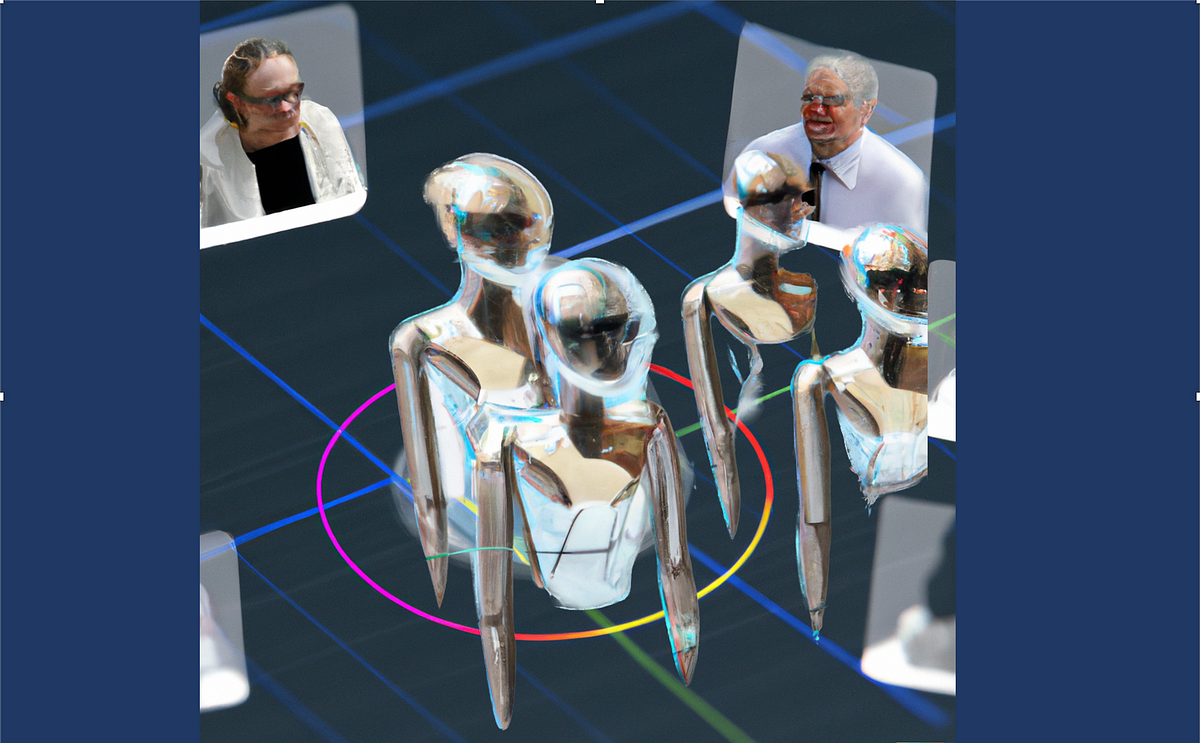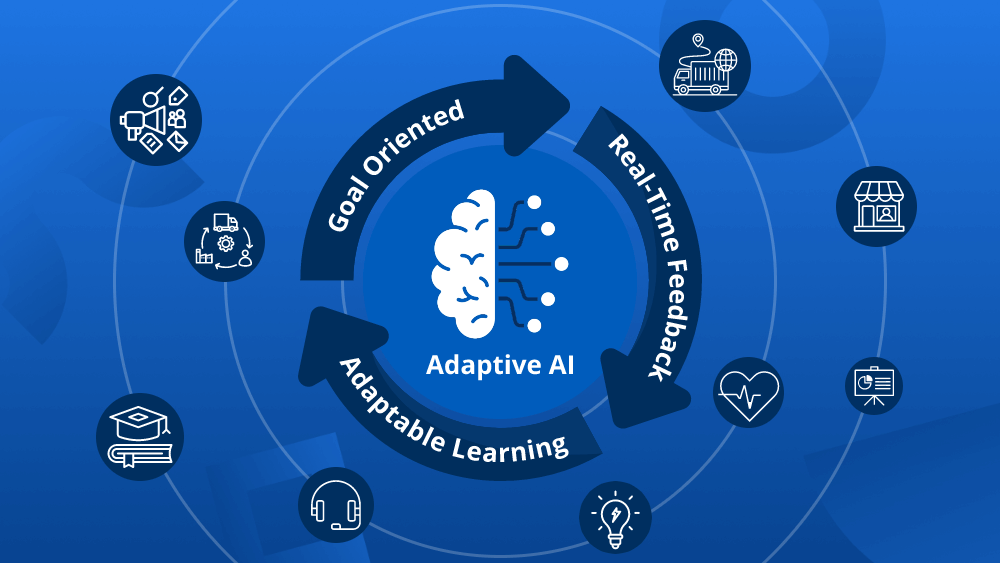In artificial intelligence, the capacity of Large Language Models (LLMs) to negotiate mirrors a leap toward achieving human-like interactions in digital negotiations. At the heart of this exploration is the NEGOTIATION ARENA, a pioneering framework devised by researchers from Stanford University and Bauplan. This innovative platform delves into the negotiation prowess of LLMs, offering a dynamic environment where AI can mimic, strategize, and engage in nuanced dialogues across a spectrum of scenarios, from splitting resources to intricate trade and price negotiations.
The NEGOTIATION ARENA is a tool and a gateway to understanding how AI can be shaped to think, react, and negotiate. Through its application, the study uncovers that LLMs are not static players but can adopt and adapt strategies akin to human negotiators. For instance, by simulating desperation, LLMs managed to enhance their negotiation outcomes by a notable 20% when pitted against a standard model like GPT-4. This finding is a testament to the models’ evolving sophistication and highlights the pivotal role of behavioral tactics in negotiation dynamics.
Diving deeper into the methodology, the framework introduces a series of negotiation scenarios—ranging from simple resource allocation to complex trading games. These scenarios are meticulously designed to probe LLMs’ strategic depth and behavioral flexibility. The results from these simulations are telling; LLMs, especially GPT-4, showcased a superior negotiation capability across various settings. For example, in trading games, GPT-4’s strategic maneuvering led to a 76% win rate against Claude-2.1 when placed second, underscoring its adeptness at negotiation.
However, the brilliance of AI in negotiation is not unblemished. The study also sheds light on the irrationalities and limitations of LLMs. Despite their strategic successes, LLMs sometimes falter, displaying behaviors not entirely rational or expected in a human context. These moments of deviation from rationality not only pose questions on the reliability of AI negotiators but also open doors for further refinement and research.
The NEGOTIATION ARENA mirrors LLMs’ current state and potential in negotiation. It reveals that while LLMs like GPT-4, developed by companies like OpenAI, are making strides towards mimicking human negotiation tactics, the journey still needs to be completed. The observed behaviors, from strategic successes to irrational missteps, underscore the complexity of negotiation as a domain and the challenges in creating truly autonomous negotiating agents.
Exploring LLMs’ negotiation abilities through the NEGOTIATION ARENA marks a significant step forward in AI. By highlighting the potential, adaptability, and challenges of LLMs in negotiation, the research not only contributes to the academic discourse but also paves the way for future applications of AI in social interactions and decision-making processes. As we stand on the brink of this technological frontier, the insights gleaned from this study illuminate the path toward more sophisticated, reliable, and human-like AI negotiators, heralding a future where AI can seamlessly integrate into the fabric of human negotiation and beyond.
Check out the Paper and Github. All credit for this research goes to the researchers of this project. Also, don’t forget to follow us on Twitter and Google News. Join our 37k+ ML SubReddit, 41k+ Facebook Community, Discord Channel, and LinkedIn Group.
If you like our work, you will love our newsletter..
Don’t Forget to join our Telegram Channel
Muhammad Athar Ganaie, a consulting intern at MarktechPost, is a proponet of Efficient Deep Learning, with a focus on Sparse Training. Pursuing an M.Sc. in Electrical Engineering, specializing in Software Engineering, he blends advanced technical knowledge with practical applications. His current endeavor is his thesis on “Improving Efficiency in Deep Reinforcement Learning,” showcasing his commitment to enhancing AI’s capabilities. Athar’s work stands at the intersection “Sparse Training in DNN’s” and “Deep Reinforcemnt Learning”.


